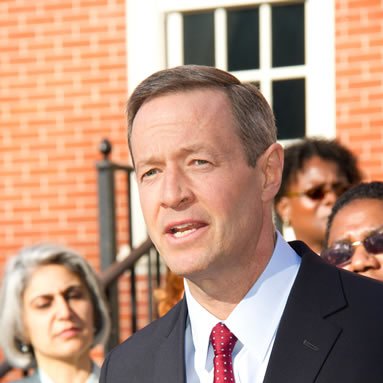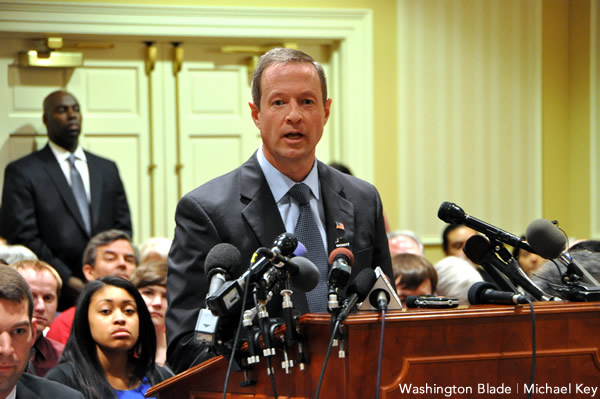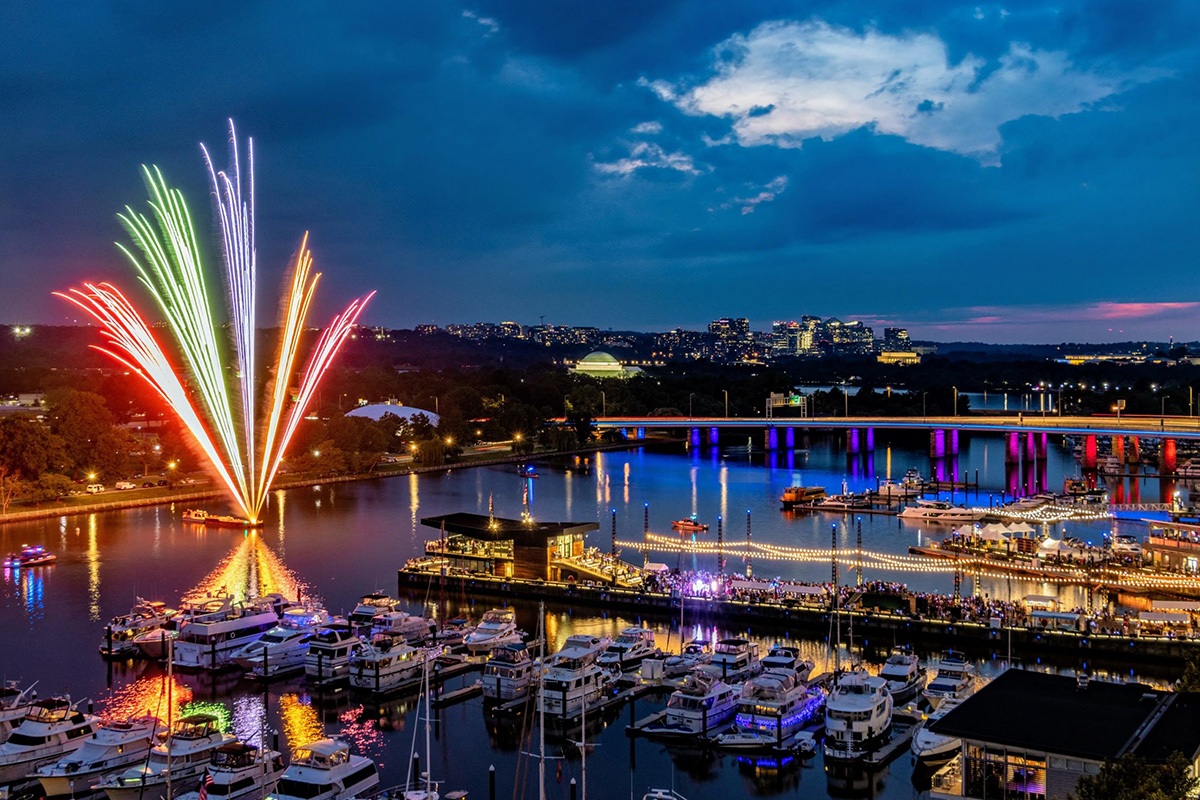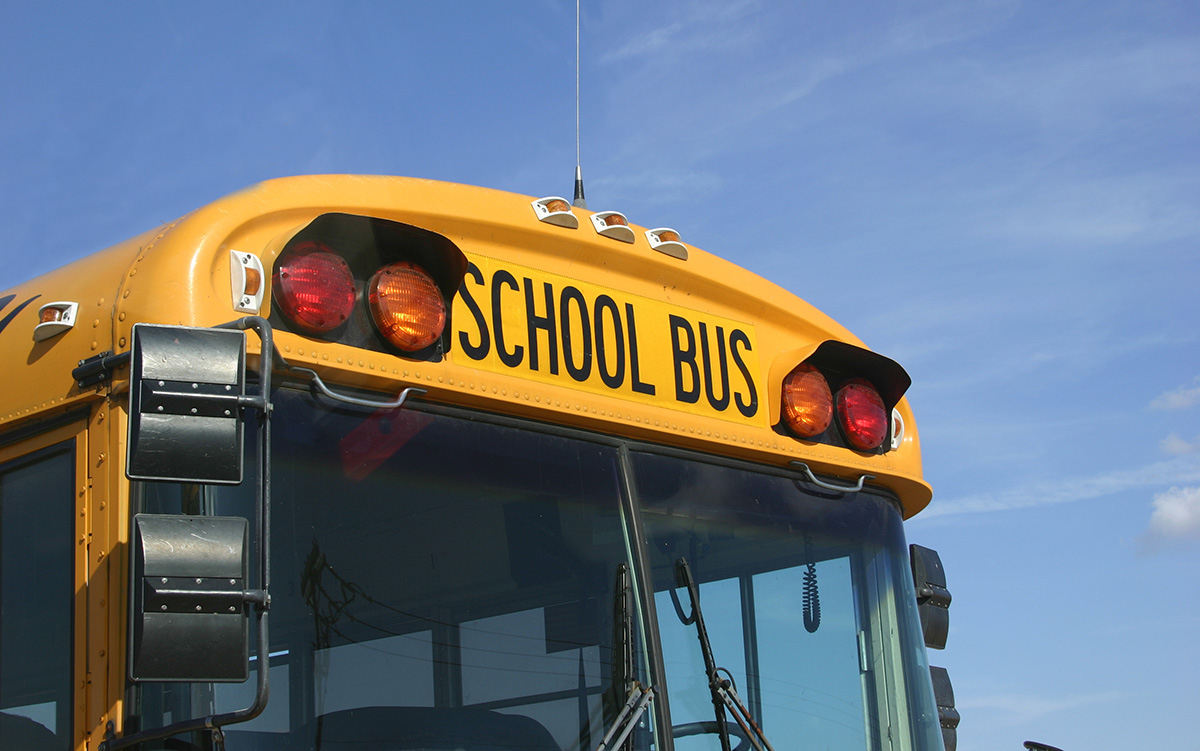Local
O’Malley: Md. marriage campaign ‘is in good shape’
Maryland governor said pro-Question 6 campaign needs to raise an additional $400,000 before Election Day


Maryland Gov. Martin O’Malley stressed the campaign defending his state’s same-sex marriage law is “in good shape.” (Washington Blade photo by Michael Key)
Maryland Gov. Martin O’Malley told journalists during an Oct. 31 conference call that the campaign defending his state’s same-sex marriage law needs to raise roughly $400,000 to ensure Question 6 passes on Election Day.
HOW DO PRESIDENT OBAMA AND GOVERNOR ROMNEY COMPARE ON LGBT ISSUES?
“We’re now about $400,000 away from having on hand what we need to have, so this last push is critically important,” he said. “We continue to raise dollars, and the interest in this question continues — more and more people are becoming interested in this, so I appreciate your coverage on it. And hopefully with your coverage of what you’re doing and what the campaign we’ll be able to get the word out and rally people to this cause.”
Marylanders for Marriage Equality’s Oct. 12 campaign finance report noted it had raised slightly under $3.3 million. O’Malley said the pro-Question 6 group has raised another $1.5 million since he spoke with LGBT bloggers and journalists during a Sept. 24 conference call. This figure includes the $1,205,392.87 that Marylanders for Marriage Equality raised between Oct. 8-21, according to its latest campaign finance report it filed with state election officials on Oct. 26.
The Maryland Marriage Alliance, which opposes Question 6, raised only $846,865.23 during the same period.
“We have one week to go,” said O’Malley. “The campaign is in good shape.”
The governor noted both the Washington Post and the Baltimore Sun have endorsed Question 6. He further referenced Baltimore Congressman Elijah Cummings who told the Washington Blade last week he plans to vote for Maryland’s same-sex marriage law.
O’Malley also pointed out Prince George’s County Executive Rushern Baker, gay former Republican National Committee Chair Ken Mehlman, New York City Mayor Michael Bloomberg and President Obama as among Question 6’s most prominent local and national supporters.
“All of that said, we still have a lot of work to do,” said the governor.
A Goucher College poll released on Oct. 29 found 55 percent of Marylanders support marriage rights for same-sex couples in the state, compared to 39 percent who oppose them. A Baltimore Sun survey conducted between Oct. 20-23 found only 46 percent of respondents would vote for the law. A Washington Post poll published on Oct. 18 noted 52 percent of Maryland voters support Question 6, compared to 42 percent who said they oppose it.
“We always expected this race to tighten up,” said Josh Levin, campaign manager for Marylanders for Marriage Equality, during the call. “What we’ve always said is that we expect this to be a very close race, which is why we’re asking so much of our volunteers and our supporters both in terms of the fundraising and the volunteering on the ground.”
N.H. MARRIAGE EQUALITY AT STAKE IN GUBERNATORIAL RACE
Marylanders for Marriage Equality, the National Association for the Advancement of Colored People and the Maryland Marriage Alliance continue to air television and radio ads for and against Question 6 in the Baltimore and D.C. media markets. Marylanders for Marriage Equality’s latest campaign finance report indicates the group spent $2,044,748 on media between Oct. 8-21, compared to slightly more than $1 million of air time the Maryland Marriage Alliance bought during the same period.
O’Malley predicted the National Organization for Marriage will come into Maryland with what he described as a “last minute infusion” of money in the campaign’s final days. The governor said the bulk of these funds will go towards anti-Question 6 television ads.
“They’re the same ads you’ve seen in other states [with same-sex marriage campaigns;] ads even some of those that ran the ads admitted were false,” said O’Malley.
O’Malley also responded to the Blade’s question about Rev. Robert Anderson of Colonial Baptist Church in Randallstown who suggested during an Oct. 19 town hall meeting at a Baltimore church that those who don’t vote against Question 6 “are approving these things that are worthy of death.” Reverend Phillip Goudeaux of Calvary Christian Center in Sacramento, Calif., described gay men as “predators” who seek to indoctrinate children during an anti-Question 6 gathering at another Baltimore church on Oct. 21 that Family Research Council President Tony Perkins, Bishop Harry Jackson of Hope Christian Church in Beltsville, Maryland Marriage Alliance Chair Derek McCoy and roughly 100 others attended.
“That sort of rhetoric is going to be rejected by the people of our state,” said O’Malley. “We are a very diverse state, ethnically and also religiously. And we’re a people who understand that we’re all in this together. And that sort of rhetoric of fear and division and vilifying people that are not like us for whatever reason is not the sort of thing that builds consensus in Maryland.”
Levin reaffirmed his belief the campaign has had what he described as “a pretty good week or two here” despite Superstorm Sandy that forced Marylanders for Marriage Equality to cancel volunteer activities on Oct. 29.
GAY DELAWARE STATE SENATE CANDIDATES POISED TO MAKE HISTORY
Campaign supporters spoke with friends and family about Question 6 during the storm after they made sure they were safe. Levin also noted the campaign saw “a lot of support” for Question 6 over the weekend at early vote locations across the state before Sandy forced officials to postpone early voting for two days.
“At this point it is sort of all hands on deck raising those last few dollars as you said and getting as many volunteers together as we can for Election Day to help us have a presence at the polls, to help us get out our voters and help us spread the word about Question 6 coming down to the very end,” he said. “The good news is that we continue to see what I think is momentum.”
O’Malley agreed.
“The bottom line is this; we’re doing well,” he said. “We need to continue to work hard. We have a real shot at prevailing here. Our message is getting through thanks to the good work and help of a lot of people. This is about fairness. This is about equality. This is about respecting the human dignity of every individual and making sure that our laws protect religious freedom while also protecting every individual equally under the law-in other words that no family’s home should receive lesser protections under the law than another family’s home.”
District of Columbia
LGBTQ budget advocates fight for D.C. resources in a tough fiscal year
‘Trying to preserve life-saving services’ amid $1 billion cut

The months and days leading up to June are especially busy for LGBTQ Washingtonians. For one group, the DC LGBT Budget Coalition, which works year-round to ensure LGBTQ residents are represented and financially supported by the D.C. government, this time of year is their Super Bowl. Beginning in April, the D.C. Council and Mayor’s Office hold budget hearings for the next fiscal year.
With D.C.’s budget now under review, the Washington Blade spoke with Heidi Ellis, coordinator of the DC LGBT Budget Coalition, about the group’s top priorities and their push to ensure continued support for queer communities.
“The LGBTQ Budget Coalition was founded in 2020 at the height of the pandemic, as a way for the community to work together to advocate for key funding and policy changes,” Ellis said. “We recognized we were stronger together. A lot of groups are often pitted against each other for resources and dollars. This coalition was founded out of a need for unity. Since then, we’ve successfully advocated for more than $20 million in dedicated LGBTQ investments.”
In addition to coordinating the coalition, Ellis is the founder and CEO of HME Consulting & Advocacy, a firm that helps build coalitions and advance policy initiatives that address intersectional issues in the LGBTQ community. One of its most powerful tools, she explained, is direct outreach through community surveys.
“We actually do community surveys to see what people need and what’s top of mind,” Ellis said. “Of course, we also pay attention to the broader political landscape — like the current threats to HIV funding. That helps us prioritize.”
Because the coalition is comprised of more than 20 organizations across various sectors —healthcare, housing, community organizing — Ellis said its diversity enables it to connect grassroots needs to potential policy solutions.
“Our coalition includes service providers, community groups, health and housing advocates-folks who are deeply plugged into what’s happening on the ground,” she said. “They help determine our direction. We know we don’t represent every queer person in D.C., but our coalition reflects a wide range of identities and experiences.”
The insights gathered through those surveys ultimately inform the coalition’s annual budget proposal, which is submitted to the Council and mayor.
“That’s how we got to our FY26 priorities,” she said. “This year, more than ever, we’re fighting to protect what we’ve already secured — funding and policies we’ve had to fight for in the past. We know there’s concern around this budget.”
One of the challenges this year is that the D.C. government’s operating budget and some of its legislation must be approved by Congress. With a projected decline in tax revenue and a Republican-controlled Congress that has historically opposed LGBTQ funding, the Coalition has had to think strategically.
“Even before the situation on the Hill, the CFO projected lower revenue,” Ellis said. “That meant cuts to social programs were already coming. And now, with the $1 billion slashed from D.C.’s budget due to the continuing resolution, we’re not only fighting for D.C.’s budget and autonomy, but also trying to preserve life-saving services. Our message is simple: Don’t forget about queer people.”
This year’s proposal doesn’t include specific dollar figures. Instead, the Coalition outlines five funding priority areas: Healthcare, Employment & Economic Equity, Housing, Safety & Community Support, and Civil Rights.
Why no exact amounts? Ellis said it’s because not all solutions are financial.
“Some of our asks don’t require new funding. Others build on existing programs-we’re asking whether the current use of funds is the most effective. We’re also proposing policy changes that wouldn’t cost extra but could make a real difference. It’s about using what we have better,” she said.
When drafting the proposal, the Coalition tries to prioritize those with the most pressing and intersecting needs.
“Our perspective is: If we advocate for the most vulnerable, others benefit too,” Ellis said. “Take LGBTQ seniors. Some may have done well in life but now face housing insecurity or struggle to access affordable healthcare. Many in our coalition are elders who fought on the frontlines during the AIDS epidemic. They bring critical historical context and remind us that Black and brown communities bore the brunt of that crisis.”
“I love our coalition because it keeps us accountable to the moment,” she added. “If we center those most marginalized, we can make an impact that lifts everyone.”
In addition to healthcare and housing, safety remains a top concern. The Coalition has fought to maintain funding for the Violence Prevention and Response Team (VPART), a city-supported group that includes MPD, community-based organizations, and the Mayor’s Office of LGBTQ Affairs. VPART responds to crimes affecting the LGBTQ community and connects victims to legal, healthcare, and housing services.
“We’ve pushed to make VPART more proactive, not just reactive,” Ellis said. “The funding we’ve secured has helped survivors get the support they need. Cutting that funding now would undo progress we’re just beginning to see.”
At the end of the day, Ellis emphasized that this process is about far more than spreadsheets.
“A budget is a moral document,” she said. “If we’re not represented, you’re telling us our lives don’t matter at a time when we need protection the most. When people can’t get food, medicine, housing — that has a devastating impact. These are vital services.”
The DC LGBT Budget Coalition is urging residents to support a letter-writing campaign to D.C. Council members and the mayor. You can send a letter here: https://actionnetwork.org/letters/fully-fund-dcs-lgbtq-communities
Read the full FY26 budget proposal here: https://drive.google.com/file/d/1bTrENnc4ZazJTO6LPrQ3lZkF02QNIIf1/view
Arts & Entertainment
Washington Blade’s Pride on the Pier returns bigger than ever with two-day WorldPride celebration

The Washington Blade’s Pride on the Pier will be extended to a two-day celebration in honor of WorldPride coming to D.C. this year. Taking place on Friday, June 6 and Saturday, June 7 at The Wharf, this year’s event promises more entertainment, more community, and more pride than ever before — all set against the stunning waterfront backdrop of our nation’s capital.
With the addition of Friday, the party kicks off at 3 p.m., with the inaugural WorldPride Boat Parade at 7 p.m. As an Official WorldPride Partner event, the boat parade will feature 30 decorated boats parading along the Washington Channel. For information on signing up for the boat parade contact Stephen Rutgers at [email protected].
Saturday’s signature Pier Party kicks off at 12 p.m., featuring a drag show, DJ’s, streaming of the WorldPride Parade, and the iconic Fireworks Show Presented by the Leonard-Litz Foundation — one of D.C. Pride’s most anticipated spectacles.
“We’re expanding Washington Blade Pride on the Pier to reflect the excitement and momentum building for WorldPride in D.C.,” said Blade publisher Lynne Brown. “It’s a celebration of our community’s progress and a powerful reminder of the joy and visibility Pride brings to the heart of our city.”
Now in its seventh year, Washington Blade Pride on the Pier extends the city’s annual celebration of LGBTQ visibility to the bustling Wharf waterfront with an exciting array of activities and entertainment for all ages. The District Pier will offer DJs, dancing, drag, and other entertainment. Alcoholic beverages will be available for purchase for those 21 and older.
Pride on the Pier is free and open to the public, with VIP tickets available for exclusive pier access, hosted bars, and private viewing areas for the boat parade and the fireworks show. To purchase VIP tickets visit www.prideonthepierdc.com/vip.
Friday VIP: 5-9 p.m., enjoy an air-conditioned lounge, private bathroom, cash bar and complimentary drink.
Saturday VIP Session #1: 2-5 p.m., enjoy an air-conditioned lounge, private bathroom, catered food, and an open bar.
Saturday VIP Session #2: 6-9 p.m., enjoy the air-conditioned lounge, private bathroom, catered snacks and dinner, and open bar with a front-row view of the fireworks.
Event Details:
📍 Location: District Pier at The Wharf (101 District Sq., S.W., Washington, D.C.)
📅 Dates: Friday, June 6 & Saturday, June 7, 2025
🛥️Boat Parade: 7 p.m. (June 6). 🎆 Fireworks Show: 9 p.m. (June 7)
🎟️ VIP Tickets: www.PrideOnThePierDC.com/VIP
Event sponsors include Absolut, Capital Pride, DC Fray, Infinate Legacy, Heineken, Leonard-Litz Foundation, Mayor’s Office of LGBTQ Affairs, Relish Catering, Washingtonian, and The Wharf. More information regarding activities will be released at www.PrideOnThePierDC.com
Maryland
Md. schools plan to comply with federal DEI demands
Superintendents opt for cooperation over confrontation

By LIZ BOWIE | Deciding not to pick a fight with the Trump administration, Maryland school leaders plan to sign a letter to the U.S. Department of Education that says their school districts are complying with all civil rights laws.
The two-paragraph letter could deflect a confrontation over whether the state’s public schools run diversity, equity, and inclusion programs that the Trump administration has called illegal. The Baltimore Banner reviewed the letter, which was shared by a school administrator who declined to be identified because the letter has not yet been sent.
Maryland school leaders are taking a more conciliatory approach than those in some other states. Education leaders in Minnesota, New York, Colorado, Oregon, Vermont, and Wisconsin said they will not comply with the federal education department’s order, the demands of which, they say, are based on a warped interpretation of civil rights law.
The rest of this article can be found on the Baltimore Banner’s website.
-

 Opinions5 days ago
Opinions5 days agoIt’s time for new leadership on the Maryland LGBTQIA+ Commission
-

 The White House5 days ago
The White House5 days agoWhite House does not ‘respond’ to reporters’ requests with pronouns included
-

 Arts & Entertainment5 days ago
Arts & Entertainment5 days ago‘Gay is Good’ Pride Pils Can Celebrates Frank Kameny’s 100th Birthday for WorldPride in D.C.
-

 Sponsored5 days ago
Sponsored5 days agoTHC Drinks: What You Should Know About Cannabis Beverages









